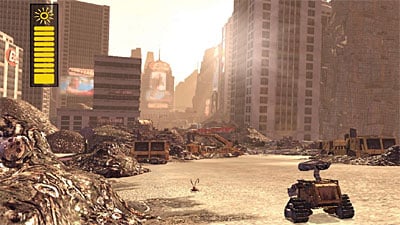Great topic -- a very rich vein of ideas here that touches on issues such as:
1) neuroscience and pyschology
2) sociology
3) environmental science and biology
Scrappers -- Metal/electronic scrappers in particular -- are in a sense a form of metal fungi -- metal mushrooms.
And that association, between scrapping and decomposition, begins to unravel an aspect of the social disapproval -- even though, as you point out, scrapping is central to alleviating issues of resource scarcity and pollution.
Let's first unpack the idea of social disapproval:
Many people look down on scrapping -- and I think there's an unconscious neurological basis for the disapproval. Humans are at some level wired to fear, avoid, and show revulsion toward issues relating to end-of-life and decomposition -- and the wiring is so fundamental and so powerful it stretches beyond human biology and envelopes inanimate objects too. At the same time, humans are inclined to favor the polar opposite: growth and construction. This fundamental social programming is evident everywhere:
It's the focus of virtually all media (television, radio, internet, newsprint etc.) displaying favorable associations between economic growth, construction, and manufacturing. All of these words -- growth, construction, and manufacturing -- have a common underlying thread: An emphasis on building as opposed to decomposition. The media glorifies youth and growth -- youthful beauty -- at the same time it shuns age and decline. Note, for example, that most Hollywood actresses' careers are over by their mid-late 30s. The spotlight shifts to the newest 20-something phenomenon at the first sign of wear and tear -- decomposition and decline. Society has built immense industries dedicated largely to shielding productive youth from evidence of their inevitable age and decline. Witness the old age home and the assisted living complexes that cordon off the elderly and the faltering into carefully partitioned communities -- largely hidden from view -- out of sight, out of mind.
Why is that?
Why does society engage in this perplexing behavior?
Very primal fears of death. Revulsion of decomposition. This is a very active area of research -- the neurochemistry and neurobiology of revulsion. The New York Times recently published an article summarizing some of the new findings. -- Title:
Survival’s Ick Factor
http://www.nytimes.com/2012/01/24/sc...pagewanted=all
NPR had a recent radio broadcast on the topic of fungi, and it touched on issues of social disapproval regarding decomposition.
Title: The Man Who Studies The Fungus Among Us
http://www.npr.org/2012/01/18/145339...ungus-among-us
The professor of mycology -- Nicholas Money -- eloquently elaborated on why decomposition is so important. Without it, a finite planet would quickly run out of resources.
And IMO, fungi, whether it be biological fungi , or scrappers (metal fungi - metal mushrooms) play an equally important role in limiting the consequences of resource scarcity.
We live on a finite planet with 7 billion people projected to reach 10 billion by around 2030. The end of the cold war released billions of new capitalists from the bondage of communism -- and they're all striving for the good life, competing for resources.
In this context, scrappers are, IMO, at the leading edge of movement that will define our lifetimes -- the repurposing and upcycling and recycling of the consumer products that surround us. Eventually, as resource constraints bite harder, I think we'll one day begin to mine our landfills.
Social Disapproval now -- Social Norm tomorrow. It's immensely enjoyable to be part of something -- an endeavor -- that has a real future.







 Register To Reply
Register To Reply












Bookmarks